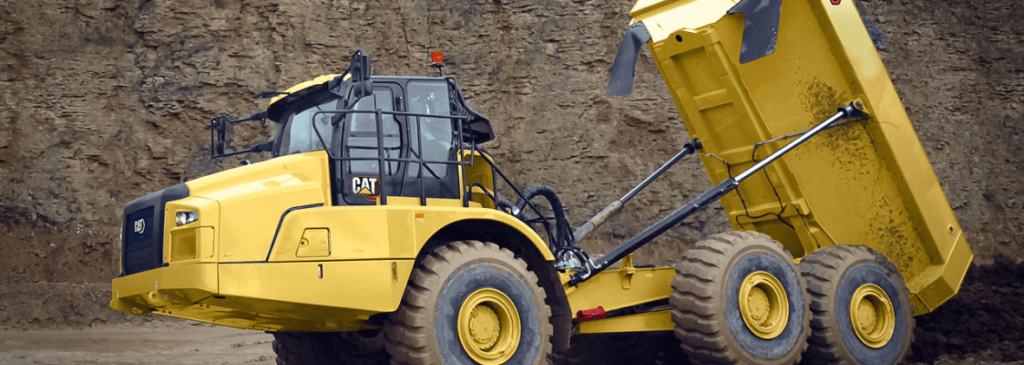The Advantages of Renting Over Buying Power Equipment for Seasonal and One-Time Projects

In today’s dynamic world, where efficiency and cost-effectiveness are paramount, the choice between renting and buying power equipment for seasonal and one-time projects is crucial. This decision can significantly impact your project’s budget, efficiency, and overall success. Renting, particularly when it comes to power equipment for rent, presents a compelling case, offering numerous benefits over purchasing outright.
Understanding the Basics of Power Equipment for Rent
Power equipment for rent encompasses a wide range of tools and machinery used in various industries, from construction to landscaping. This market segment has seen significant growth, driven by the versatility and convenience these rental services offer. From generators to excavators, the spectrum of equipment available for rent is vast and tailored to meet diverse project requirements.
The Financial Benefits of Renting Power Equipment
Cost-Effectiveness
- No Large Upfront Investment: Renting eliminates the need for a substantial initial purchase, allowing budget allocation to other critical areas of the project.
- Avoiding Depreciation Costs: Rental equipment sidesteps the issue of value depreciation that purchased equipment suffers over time.
- Rental Fees vs. Purchase Prices: Generally, the cost of renting is significantly lower than purchasing, especially for short-term or infrequent usage.
Budget Management
- Predictable Rental Expenses: Renting provides a predictable cost structure, making budgeting more straightforward.
- Easier Budgeting for Projects: With rental, you only pay for the equipment when you need it, avoiding long-term financial commitments.
- No Maintenance and Storage Costs: The responsibility of maintaining and storing the equipment falls on the rental company, reducing your indirect costs.
Practical Advantages of Renting
Flexibility and Convenience
- Access to a Wide Range of Equipment: By renting equipment, you gain the ultimate flexibility to choose from a variety of tools that are specifically tailored for your task, without any long-term commitment of purchasing.
- No Worries About Equipment Obsolescence: Technology evolves rapidly; renting ensures you always have access to the latest equipment.
- Easy Upgrades and Replacements: Rental agreements allow for easy upgrading or replacing equipment as project demands change.
Space and Maintenance Savings
- No Need for Storage Space: Renting frees you from the need for large storage areas for equipment.
- Elimination of Maintenance Responsibilities: Regular maintenance, a significant aspect of equipment management, is handled by the rental company.
- Professional Maintenance and Support: Rental companies provide well-maintained equipment and support, ensuring reliability.
Environmental and Sustainability Considerations
Reduced Environmental Footprint
- Lower Resource Consumption: Renting leads to more efficient use of equipment, reducing the overall environmental impact.
- Benefits of Shared Usage: Shared use of equipment among multiple clients maximizes its utility, contributing to sustainability.
- Environmental Impact of Manufacturing Less Equipment: Reduced demand for new equipment manufacturing lessens the environmental footprint.
Encouraging a Circular Economy
- Supporting Recycling and Reuse: Renting promotes the reuse of equipment, aligning with the principles of a circular economy.
- Decreasing Overall Equipment Demand: This approach helps reduce the overall demand for new equipment production.
- Contributing to a Sustainable Model of Consumption: Renting is a step towards sustainable consumption and resource use.
Situational Advantages for Specific Projects
Seasonal Project Needs
- Tailored Equipment for Seasonal Requirements: Renting offers the perfect solution for seasonal projects where specific equipment is needed only for a limited time.
- Avoiding Off-Season Equipment Idleness: Renting avoids the problem of equipment lying idle during off-seasons.
- Examples of Seasonal Power Equipment Needs: This could include snow removal equipment in winter or landscaping tools in spring.
One-Time or Rare Projects
- Cost-Benefit Analysis for Infrequent Use: For projects that occur infrequently, renting is more cost-effective than buying.
- Access to Specialized Equipment: Renting allows access to specialized equipment that might be too expensive to purchase for a one-time use.
- Case Studies or Examples: Examples include using a high-powered drill for a single construction project or renting a specific type of crane for a unique lifting job.
Challenges and Considerations in Renting
Availability and Planning
- Need for Advance Booking: To ensure availability, it’s important to plan and book equipment in advance.
- Potential Issues with Equipment Availability: Popular equipment may be in high demand, necessitating early reservation.
- Strategies for Effective Planning: Effective project management involves timely scheduling of equipment rental.
Understanding Rental Agreements
- Importance of Clear Contracts: It’s crucial to understand the terms and conditions of rental agreements.
- Understanding Terms and Conditions: Familiarizing oneself with rental conditions, liability, and insurance clauses is important.
- Insurance and Liability Considerations: Ensuring appropriate insurance coverage and understanding liability issues are essential.
Conclusion
Renting power equipment offers numerous advantages for seasonal and one-time projects. It’s not only cost-effective but also provides flexibility, practicality, and aligns with environmental sustainability goals. The key is to balance the decision between renting and buying based on project needs, budget, and long-term considerations.






